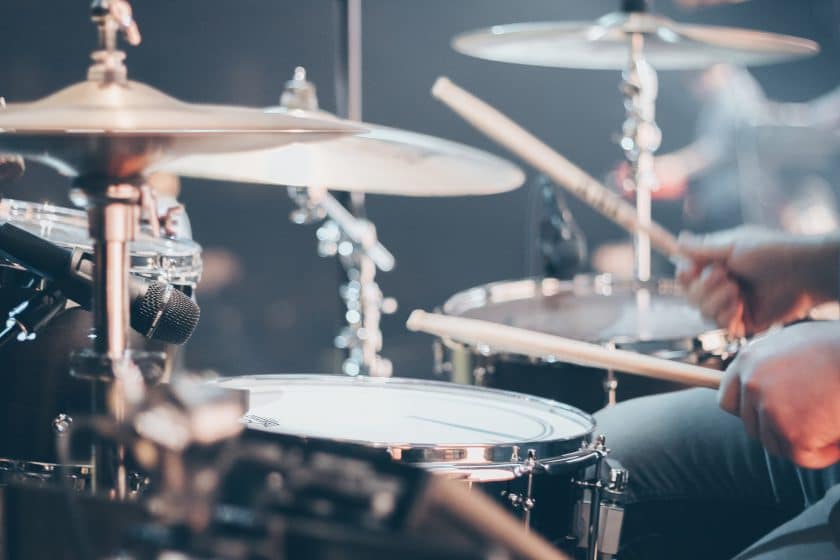Find out how to make the most of your recording session in Southampton, Hampshire and you’ll only not save money, but end up with a better-finished product. Your work starts long before you even reach the studio though, with lots of preparation.
Are you planning to lay down some tracks and needing helpful hints and tips to get started? In this article, we’ll tell you everything you need to know, to maximise your time in the studio.
How to Make the Most of Your Recording Session in Southampton, Hampshire
You may be a seasoned musician, or you may be looking forward to your first time in the recording studio. Either way, you’ll be keen to get some great tracks in as little time as possible.
Your material is written, practised and ready to go. So now’s the time to imagine how you’d like your finished product to sound – if you haven’t already. This especially applies if it’s electronic music, much of which is created digitally. So much more is possible when using a professional recording studio. Your dreams can become a reality. Listening to music from other artists of a similar genre may help you understand what kind of sound you want to achieve. And communicating this will, in turn, help your engineer set to up the equipment to achieve just the right sound.
What makes a good recording?
Whether you’re a solo artist or recording with others, you’re only as good as your practice time. Yes, you may have a one-off magical take as you wing it, but it’s not a live performance. In the studio, you have to repeat sections over and over. So you need to know you can come up with the goods. Make sure you know your parts ahead of time to minimise mistakes that will inevitably be made due to the nerves and high-pressure environment of being in the studio. If you’re recording alongside others, make time to practise together, in the long run, this saves you time (and a lot more money) in the studio.
Planning a recording session in Southampton
You may be keen to get into the studio and start recording, but there are a number of things to check before you book yourself a recording session. You should have a plan and a vision, yet be ready to be flexible on the day. Preparation and flexibility are the keys to remaining cool and calm when things don’t go quite to plan. And magic can occur in the unexpected.
How to book a studio session
Having a rough schedule for the day will help you define what you want to achieve. Have a realistic minimum target the chat to the studio about your needs. Let them know what you have in mind and they’ll be able to tell you how long you’ll need. If you already know what you need, you can book online, or give them a call. However, don’t set your expectations too high as it is hard to predict a studio session in its entirety.
Preparing for a recording session in Hampshire
In the studio, you may well have to deal with unexpected issues. You can minimise these and the impacts by being as organised as possible. Have spare strings, drum sticks and plectrums with you. Make sure you have lyrics or sheet music printed off and ready to go if necessary. Your time is valuable, don’t leave anything up to chance.
How to use a recording studio
You’re organised and prepared. You’ve practised until you can sing or play your material backwards and the big day has arrived. Get up in plenty of time, work out your route and make every effort to arrive at the studio in plenty of time. That’ll help you begin with a positive attitude. In turn, you are more likely to feel you’re getting your money’s worth.
Your producer may have a suggestion for something completely different, that could improve your track. Be open to trying new things and let your creativity flow. Producers and engineers know their stuff, so make use of them.
Voice Recording Tips
Here are some great tips for sounding your best in the studio.
As eager as you may be to get started, don’t skip your vocal exercises. It’ll make all the difference to how you sound and give you the stamina to keep going for your whole session (which may be very long). Spend some time warming up your voice if you’re a singer, or your fingers and your instruments if you’re a musician. If you don’t, your first hour might be pretty ropey and you vocal risk injury and fatigue if singing cold.
It’s likely you’ll be singing earlier in the day than you would for gigs too (as most of these are at night). All the more reason to get things moving gradually so you’re on top form by the time you start. Don’t overdo it though. Here’s a guide on how to warm-up your voice before recording for greater success.
More recording tips
By the end of the session, you may be sick of the sound of your own music and fatigue may affect how you view your recordings. Remember that this is normal and your personal investment, tiredness and concerns are likely to cloud your judgement.
To avoid becoming disheartened, don’t be tempted to listen to your recordings and make any big decisions about cuts on the day. Taking a time out can be really useful here. Be prepared to bring your break forward to release the tension or use it to practise any changes you’ve built-in during the recording, or ideas the engineer/producer may have.
A professional recording session in Southampton is an exciting, dynamic experience. It can be pressured knowing you’re paying for the time, but this is useful for getting your creative juices flowing. Harness that pressure and it might just bring out the best in you.
Related Questions
How long is a recording session?
Your recording session could be an hour-long taster, a half-day, full-day or several days (if the latter, you do go home in between!). It depends on how many tracks you want to record, what’s involved and the outcome you’re seeking.
How do you organize a recording session?
Plan to record entire songs rather than parts of it – presuming everyone required is available for the whole session. Aim to lay down a few decent recordings of each song. This will give you enough material to mix in your post-production sessions. Schedule frequent breaks for rest and refreshment.

